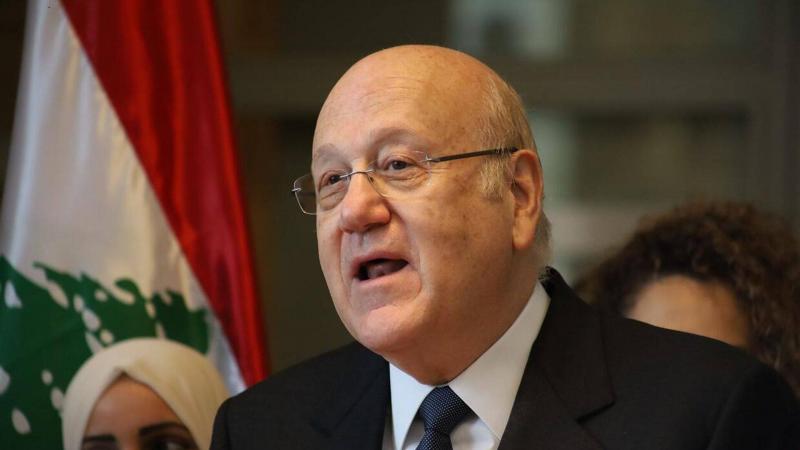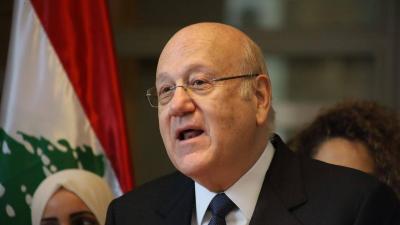The caretaker Prime Minister Najib Mikati affirmed that his position regarding requesting security agencies not to implement the decisions issued by Judge Ghada Aoun is aimed at stopping a dangerous trend of using the judiciary and law to settle political scores. He denied standing with banks at the expense of depositors. Mikati had asked Interior Minister Bassam Mawlawi last Wednesday to call on security forces not to execute judicial decisions taken by the public prosecutor in Mount Lebanon, Judge Ghada Aoun, against some banks.
Mikati reiterated yesterday his call for the relevant judicial authorities to expedite addressing the violations and excesses in the judicial process to ensure the proper administration of justice. He stated before his visitors, "The position I took through the letter directed to the Interior Minister aimed to stop a dangerous trend of using the judiciary and law to settle political scores. It was never intended to protect anyone or provide cover for anyone's violations."
Mikati emphasized, "Our goal is to protect the banking sector as it is a fundamental pillar of the economy, not to protect any banker or any bank that violates the law." He added, "Through our efforts, we prioritize before anything else the return of depositors' funds and stopping the circumvention of laws against them."
In response to a question, Mikati said, "It is not true that we take the side of banks at the expense of depositors. What we are doing in terms of actions and steps in cooperation with the Parliament and the International Monetary Fund is fundamentally aimed at restoring people's rights within a clear and programmed plan," urging for "a stop to political obfuscation and convincing everyone that there is no solution except through cooperation among various political components for the upliftment of this country."
Mikati denied being harsh on the topic of "Judge Ghada Aoun's violations" and being lenient with Central Bank Governor Riad Salameh, calling for "the application of laws on everyone, and let the judiciary have its say in all files." Regarding the Central Bank, he mentioned that there are principles defining how appointments, dismissals, and decisions are made within the bank's central council. He stated, "In the new reality that has arisen concerning the court prosecution of the governor, there are clear legal rules that will be followed."
He stressed the necessity for the Higher Judicial Council to fully play its role in addressing the judicial situation to uphold rights and justice for all, and "to stop the excesses and violations that are occurring and to resolve the many complaints filed by the aggrieved." He added that "any objector must read the written text literally before launching objections and positions based on political backgrounds."
Mikati emphasized that he is not an advocate for interference in judicial work, stating, "I was clear in my letter mentioning documents I received detailing violations attributed to some judges." He added, "From my constitutional position and my keenness on applying the law and maintaining the proper administration of justice, I requested the Interior Minister to take necessary measures and actions permitted by the applicable laws and regulations to apply the law, prevent its circumvention, and maintain the proper administration of justice."
Mikati confirmed that "no bank is immune to any prosecution or accountability if it is proven to have committed any violations or legal transgressions, but with consideration for the principles of prosecution and trial that are protected by the constitution and law."




